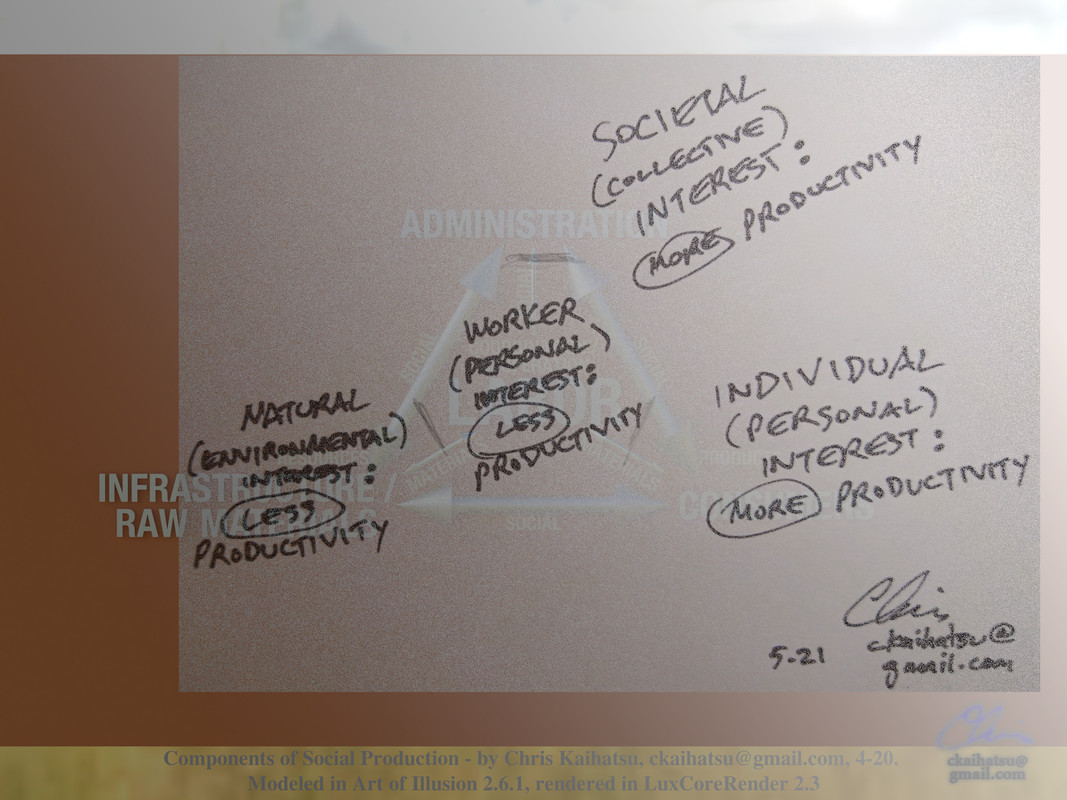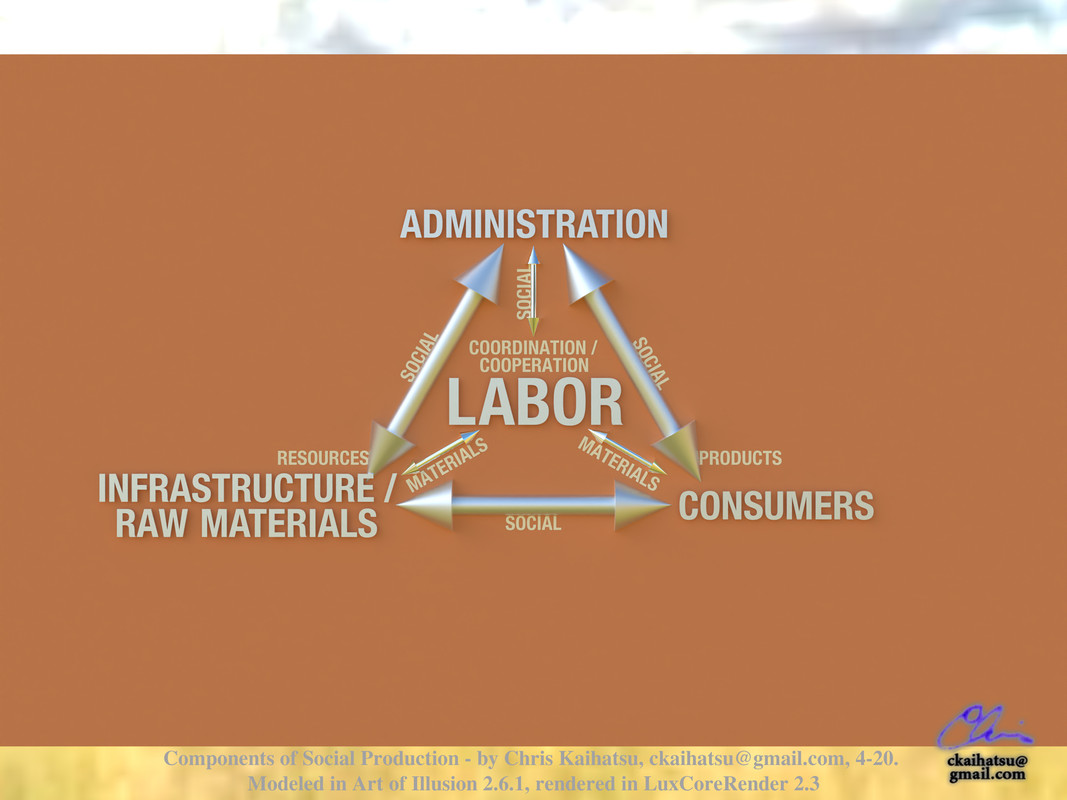Potemkin wrote:The bourgeoisie were a minority in the late medieval period, but they took power from the aristocracy (also a minority) by the most ruthless and unscrupulous means until they, and not the aristocracy, were in power. The minority then became a 'majority', through their control of the mass media, the education system, the political system, and the law courts. This is how every social revolution, every major development of western civilisation, has proceeded. Why should it be different for the proletarian revolution? As Lenin rightly pointed out, the majority are stupid, in the sense that they tend to be unthinking conformists. If you wait for them, you'll be waiting forever. The French bourgeoisie didn't wait for the French peasants to come around to their way of thinking in the 18th century, any more than the British bourgeoisie waited for the rural cottage-dwellers to accept the need for huge factories and centralised mass production to replace small-scale cottage industries. They just imposed it on them, and by doing so created the modern world which 'democratic' people now wish to preserve. These 'democratic' people are rather like 'conservatives' - forever fated to be behind the door, a day late and a dollar short, being dragged along as part of the 'tail' of historical change. In the meantime, history will be made by people like the bourgeois revolutionaries of 18th century France, or by the bourgeois industrialists of 19th century Britain, or by Lenin's Bolsheviks - all of them minorities who made themselves into majorities by taking action.
Indeed, it would be hypocrisy to simply ignore the praises for the bougeosie revolutionaries who did not hold on their ambitious aims simply because there wasn't agreement with everyone.
I think if the emphasis on the majority is taken to an extreme, it can end up a view of politics as that of consensus, which of course doesn't exist and is part of the defense of liberalism.
https://www.ethicalpolitics.org/ablunden/works/collaborative-ethics.htmThere is a serious problem with Consensus however, which has ethical implications; this is the paradox of the status quo: if there is no consensus, then the status quo ante is the default decision. Let’s suppose someone can’t hear what is being said in the meeting and proposes that the air conditioning be turned off; if anyone refuses to agree, then the air conditioning stays on. But let’s suppose the complainant had simply turned it off and then left it for someone to propose that it be turned on – it would remain off. Let us suppose that all the employees in a privately owned firm meet with the owner with a view to transforming the firm into a cooperative; everyone agrees except the owner; so, under the paradigm of Consensus, the firm remains in private hands. Clearly social transformation cannot be achieved by Consensus, because participation in a social order is compulsory, and there is no possibility of opting out.
https://www.ethicalpolitics.org/ablunden/pdfs/macintyre2.pdfMaintenance of the illusion of “objectivity” is essential, and MacIntyre sees the universities as playing a crucial role in the maintenance of this illusion. Since academics rely for their livelihood on disproving each other’s theories, the resulting interminable and esoteric debate continuously re-establishes the impossibility of consensus.
“In the course of history liberalism, which began as an appeal to alleged principles of shared rationality against what was felt to be the tyranny of tradition, has itself been transformed into a tradition whose continuities are partly defined by the interminability of the debate over such principles. An interminability which was from the standpoint of an earlier liberalism a grave defect to be remedied as soon as possible has become, in the eyes of some liberals at least, a kind of virtue”. (p. 335)
Far from this failure to find any firm ground undermining liberalism, MacIntyre believes that it reinforces it, because one of the fundamental bases for liberalism is the conviction that no comprehensive idea (to use Rawls’ term) can enjoy majority, let alone unanimous, support. This then justifies the ban on governments pursuing the general good.
“Any conception of the human good according to which, for example, it is the duty of government to educate the members of the community morally, ... will be proscribed. ... liberal individualism does indeed have its own broad conception of the good, which it is engaged in imposing politically, legally, socially, and culturally wherever it has the power to do so, but also that in doing so its toleration of rival conceptions of the good in the public arena is severely limited.” (p. 336)
Such a ban on governments pursuing the social good of course serves a very definite social interest.
“The weight given to an individual preference in the market is a matter of the cost which the individual is able and willing to pay; only so far as an individual has the means to bargain with those who can supply what he or she needs does the individual have an effective voice. So also in the political and social realm it is the ability to bargain that is crucial. The preferences of some are accorded weight by others only insofar as the satisfaction of those preferences will lead to the satisfaction of their own preferences. Only those who have something to give get. The disadvantaged in a liberal society are those without the means to bargain.” (p. 336)
and consequently,
“The overriding good of liberalism is no more and no less than the continued sustenance of the liberal social and political order”. (p. 345)
So even though there is talk of majority, I think what is implicitly expressed by some speakers is that of consensus and the idea that one can't impose anything upon others and thus the status quo should prevail, an inherently conservative tendency to oppose any change.
However, the legitimacy of the majority vote as established by merchant and workers guilds is that there is a majority over a minority and the minority follows.
I guess the question is what is the place of the masses in politics. I would assert that Lenin was acutely aware of the issue of improving the situation in which many could participate meaningfully within politics.
https://www.marxists.org/glossary/terms/m/a.htmMass
Opposite of Vanguard.
Any social movement contains both a vanguard and a mass. The masses are large numbers of people who participate in a struggle or are involved simply by their social position, but are less committed or well-placed in relation to the struggle, and generally will participate only in the decisive moments, which in fact change history. On the other side is the vanguard, made up of people and groups who are more resolute and committed, better organised and able to take a leading role in the struggle.
The masses in a social movement are by their very nature diverse for they represent a large spectrum of humanity. Not only is the mass heterogeneous, but within the mass there are a myriad of networks and relations by means of which the masses enter into activity, ponder questions of policy, make judgments of leaders and make decisions.
The consciousness of the masses can be chaotic since all manner of views co-exist within a movement. A vanguard will generally serve one of two roles among the masses: it can come to dominate the mass, shaping and forming it according to the beliefs of the vanguard, or it can "point out and bring to the front the common interests of the entire [mass]", and "always and everywhere represent the interests of the movement as a whole." (Source). It is the practical action of the masses however, which is the creative engine of all politics - smashing all illusions, punishing mistakes and exposing all fakes. When an idea is embraced by the masses, it becomes a material force of enormous power.
I guess this emphasizes why the likes of Lenin and in my earlier quote, Marx, wish for working-class institutions to be made up of a majority of working-class people. Things aren't professed from above but must be part of work within the institutions themselves in connection with communities and institutions of people.
The task isn't to passively wait for a spontaneous change because that is tailism, paralysis, which treats the world as a matter of theory independent of intervention and change by humans, that progresses independent of any human (social) subject.
One need not speak only of communists to see such a point...
https://www.africa.upenn.edu/Articles_Gen/Letter_Birmingham.htmlActually, we who engage in nonviolent direct action are not the creators of tension. We merely bring to the surface the hidden tension that is already alive. We bring it out in the open, where it can be seen and dealt with. Like a boil that can never be cured so long as it is covered up but must be opened with all its ugliness to the natural medicines of air and light, injustice must be exposed, with all the tension its exposure creates, to the light of human conscience and the air of national opinion before it can be cured.
...
Human progress never rolls in on wheels of inevitability; it comes through the tireless efforts of men willing to be co workers with God, and without this hard work, time itself becomes an ally of the forces of social stagnation. We must use time creatively, in the knowledge that the time is always ripe to do right.
The above to me makes me think of how it is the revolutionary that brings to light the conflicts in a society rather than try to hide and harmonize them as with a reformer.
I think when I say that there must be some kind of majority in order to sustain any new order, it is that any effort of a small group to attempt to establish themselves independent of any war of position, changing things within institutions to support them, will be impotent for a lack of legitimacy. Like a progressive politician that lacks a social movement or grassroots base in which to draw upon for support in pushing certain policies, they would remain an island surrounded by the uncooperative.
Of course though, one mustn't also fetishize prefigurative politics which collapses means and end and imagines itself living out the principles of the imagined utopia already. Where the goal is an endless transformation of institutions and that the only goal is cultural hegemony but not explicit political power, or then one may find themselves cracked down upon by violent means and not necessarily ready to defend themselves.
https://www.ethicalpolitics.org/ablunden/pdfs/For%20Ethical%20Politics.pdf#page90
-For Ethical Politics













 - By Tainari88
- By Tainari88